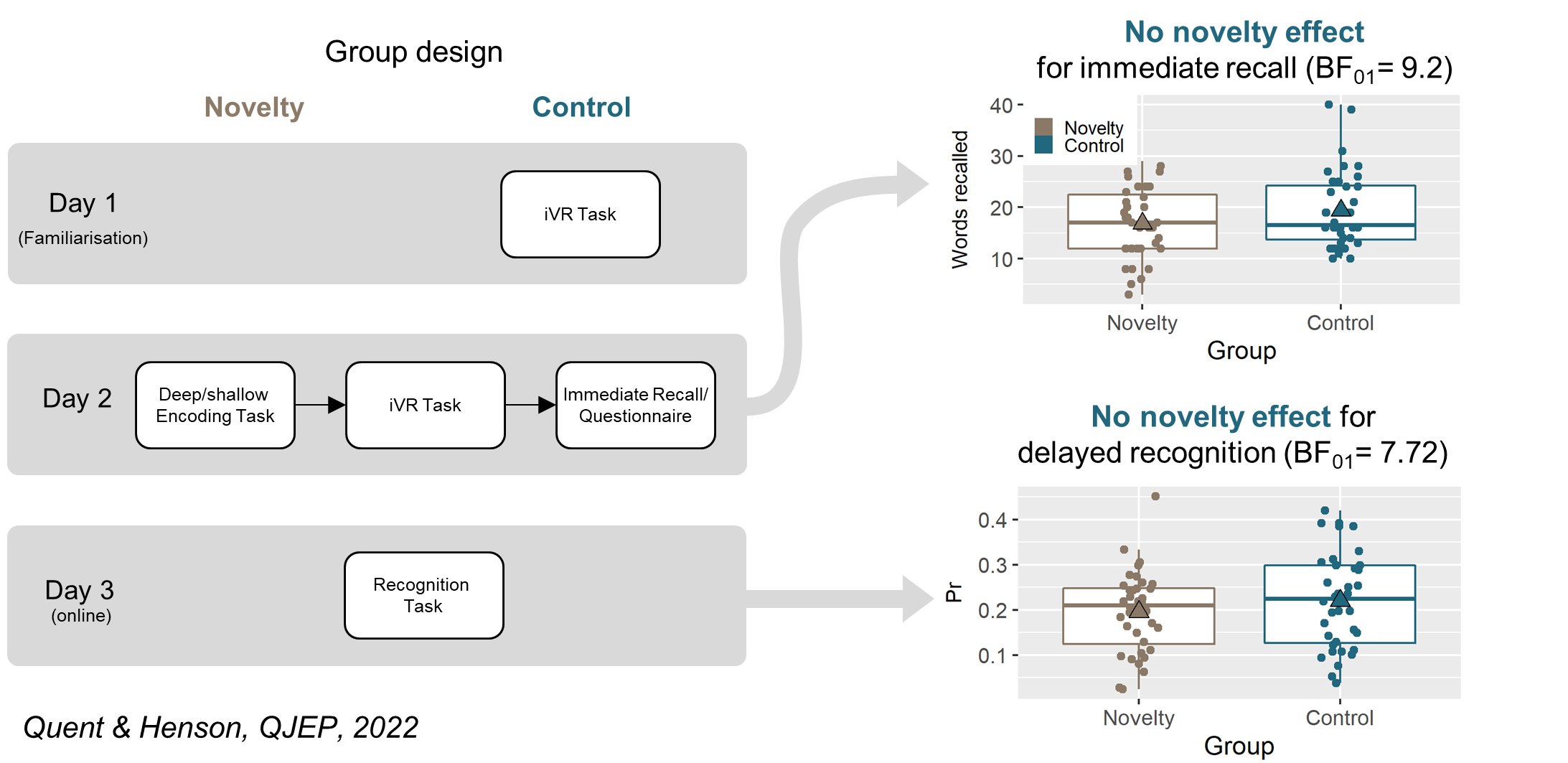Simple summary
Studies suggest that novelty can enhance memory not only for the novel event itself but also for things that happen before/after. Despite my personal strong priors in favour of this idea, I found evidence against this. This paper is now out in QJEP.

There is a lot of work in animals showing how novel experiences can tag memory as envisioned by the tag-and-capture theory. Some work including my own suggests that this is also true for humans and not only works for novelty but also reward, stress, fear, physical exercise etc. Importantly, animal work also suggests that only weakly but not strongly encoded information benefits from this boost. However, direct evidence in humans for this is currently absent.
Background
There is tons of evidence in animals for a phenomenon called behavioural tagging, which itself is derived from the tag-and-capture theory, where e.g. animals are placed in a novel environment & because of that their memory for stuff they learned before/after is better. The idea is that so-called plasticity-related products that are released in response to the novelty are also captured by other synapses that were active around the same time representing the other stuff the animals learned, which is why it is boosted.
Procedure
One group was familiarised with a immersive VR task, while the other group was kept naïve to the technology & the task. The next day both came in first & completed a shallow/deep encoding task for words, then they either experienced VR for the 1st or 2nd time, after which memory was tested immediately via recall and the next day via a recognition task.
Task design for “Shape of U: The non-monotonic relationship between object-location memory and expectedness” from Joern Alexander Quent on Vimeo.
Results
To be quick & brutal, we didn’t find a benefit when our participant experienced novelty after learning a list of words: not for recollection only, not for shallowly learned words only. The Bayes Factor actually supported the null hypothesis.
We don’t really know why that happened but it could be because the task was not novel enough, novelty not worn-off yet or the VR task was interfering with word learning in the novelty group.
Sidenote
I still grapple with whether or not that VR experience we used in our manipulation should even be called novelty. Further theoretical work after I started working on this registered report let me to change my position quite a bit.
Reference
Quent, J. A. & Henson, R. N. (2022). Novel immersive virtual reality experiences do not produce retroactive memory benefits for unrelated material. Quarterly Journal of Experimental
Psychology, 1 – 14. https://doi.org/10.1177/17470218221082491 Data & Repo, PDF
Comments